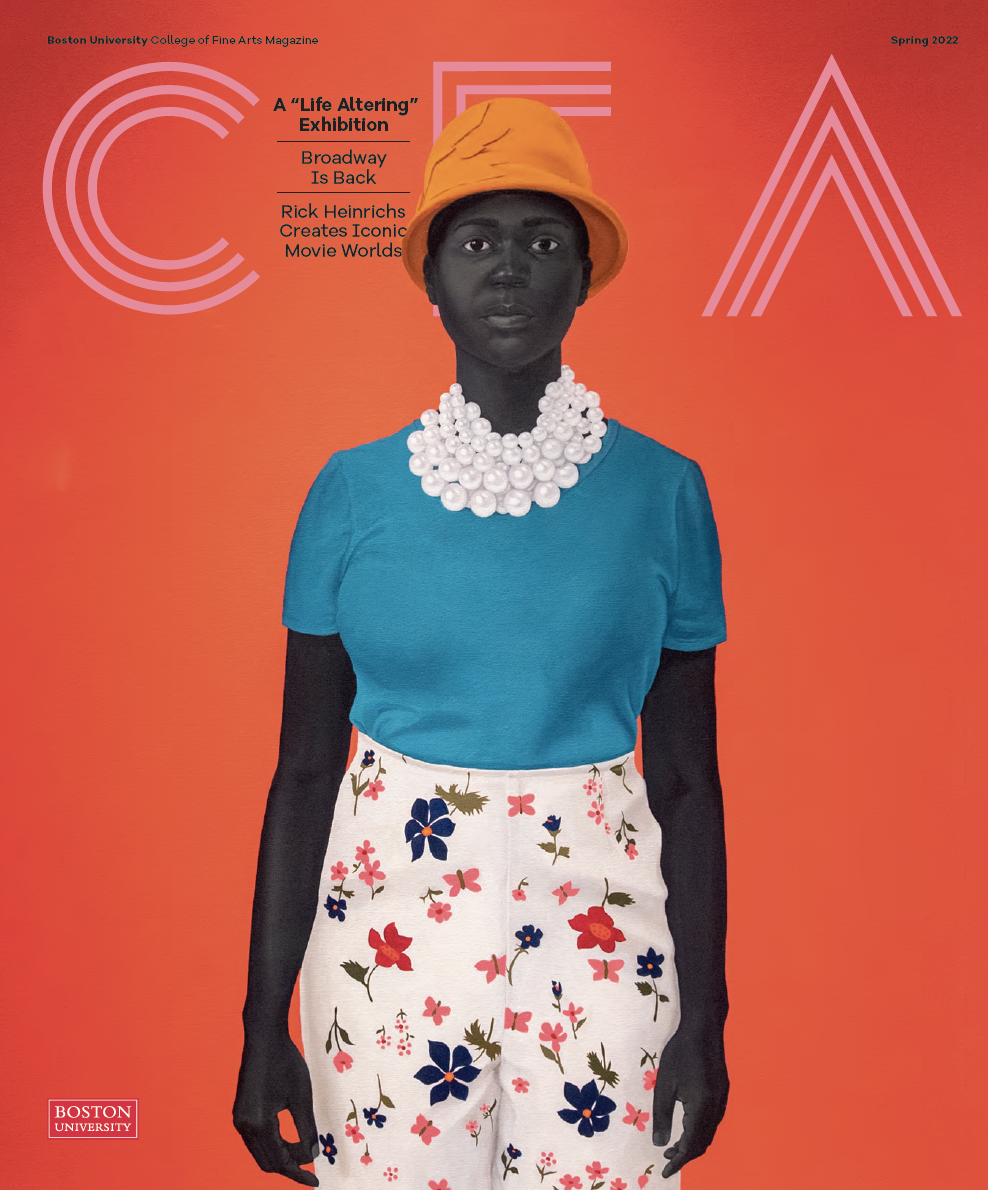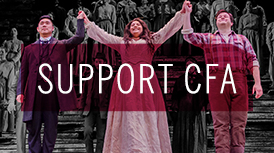In Memoriam
Joseph Ablow
PROFESSOR EMERITUS OF ART, FORMER DIRECTOR OF THE SCHOOL OF VISUAL ARTS, ON NOVEMBER 14, 2012, AT 84.
For more than 40 years, celebrated still life painter Joseph Ablow inspired College of Fine Arts students to find the power in ordinary objects. He first turned to still life as a respite from epic scenes of Greek mythology—and this respite became his life’s work.
While his subjects were often simple objects like jars and pitchers, there is nothing simple about Ablow’s paintings. “Because the objects are inanimate does not mean they are still,” he said. “What was to have been for me a subject only for study, became an engulfing involvement with a world that, for all its stillness, was elusive, mysterious, and open.”
Ablow was represented by Boston’s Pucker Gallery, and his work was exhibited nationally and internationally from the Art Institute of Chicago to Kunstsalon Wolfsberg in Zurich, Switzerland, and his paintings can be found in numerous private and public collections.
A Boston native, Ablow studied at Bennington College and the School of the Museum of Fine Arts, and received his MA in Art History from Harvard University. He came to BU in 1963 and, upon retiring in 1996, was conferred the honor of Professor Emeritus of Art. “At the School of Visual Arts we don’t forget those who have gone before us, who touched hundreds of students’ lives,” says Lynne Allen, director of the School of Visual Arts. “In this regard we honor Joseph Ablow’s contribution to our history.” — Lara Ehrlich
Anthony di Bonaventura
PROFESSOR OF MUSIC FOR THE SCHOOL OF MUSIC, ON NOVEMBER 12, 2012, AT 83.
Anthony di Bonaventura taught his students more than just the piano. He taught them to be at once humble and brave, to deepen their craft by participating in the world around them, and to enrich their world through music. “Virtuosity is a two-edged sword,” he once told The Boston Globe. “If you do not have cultural awareness and musical understanding, you have nothing. That is why I tell my students not to practice all the time. Instead they must go out and learn about other things.”
Bonaventura began playing the piano at age three, performed his first professional concert at four, won a scholarship to New York’s Music School Settlement at six, and was a soloist with the New York Philharmonic at thirteen. He studied with the celebrated teacher Madame Isabelle Vengerova, who allowed him to play only exercises for a year and a half, until he was worthy of his instrument. Bonaventura graduated from the Curtis Institute, and was selected by Otto Klemperer to perform at the London Beethoven Festival; his performances with the major orchestras and conductors of the world took him to 27 countries. In 1992, Bonaventura was awarded the Metcalf Cup and Prize for Excellence in Teaching, BU’s highest award for excellence in teaching. “Adored and respected by his students, Professor Bonaventura achieved great heights as an artist and as a teacher and won the affection and admiration of his colleagues both at BU and in the wider world of music,” says Robert K. Dodson, director of the School of Music.—Lara Ehrlich
Bruce MacCombie
FORMER DEAN OF THE COLLEGE OF FINE ARTS, ON MAY 2, 2012, AT 69.
Bruce MacCombie, dynamic composer and former dean of the College of Fine Arts, is remembered for establishing programs that advanced CFA and integrated the College with the wider BU community. “We will remember his creative talent and hard work, his understated modesty, his equanimity, his humor, his concern for excellence in all things, and his care for others,” says Anne-Marie Soullière, president, Fidelity Foundation and former CFA Advisory Board member. During his tenure from 1992 to 2000, MacCombie developed residencies for theatre students in London, visual arts students in Venice, and music students in Dresden. He negotiated contracts with the Boston Symphony Orchestra and the Tanglewood Music Center to enhance BU’s programs at Tanglewood, and developed numerous alum and professional artist connections, including residencies and master classes. MacCombie also formed the first active Dean’s Advisory Board and initiated efforts to open CFA to students from the rest of the University, inviting nonmajors to participate in the arts through a variety of courses. His pioneering leadership resulted in a nearly 40 percent upswing in applications and a 23 percent enrollment growth.
A talented composer, MacCombie earned his BA and MM from the University of Massachusetts Amherst and a PhD in music from the University of Iowa, and he studied with Wolfgang Fortner at the Freiburg Conservatory. His music was commissioned by numerous organizations and he performed at celebrated venues around the world. Among his many awards and honors, MacCombie received a Goddard Lieberson Fellowship from the American Academy of Arts and Letters, which noted that “Mr. MacCombie composes polished gems of musical understatement. Characterized by a fresh and penetrating wit, they sparkle and yet are clothed in mystery.”—Lara Ehrlich
John Silber
PRESIDENT EMERITUS, ON SEPTEMBER 27, 2012, AT 86.
When Boston University announced the death of President Emeritus John Silber (Hon.’95), one of the many BU faculty, alums, and friends who commented in the BU Today obituary was the Huntington Theatre Company’s managing director, Associate Professor Michael Maso. Without Silber, he wrote, there would be no Huntington, the professional theatre founded by BU in 1982. It was Silber’s “personal determination that the City of Boston have a world-class resident theatre. When asked why he would invest the University’s resources in what might be perceived as a risky proposition, he said, ‘If Boston University can support a football team, it can damn well support a theatre company!’”
Silber is widely credited with spearheading BU’s emergence as a leading research institution during his more than thirty-year tenure. Although often a controversial figure, he cemented the arts as a central part of campus life. And that included opera, according to William Lumpkin, acting director of the BU Opera Institute, who says, “Our students are direct beneficiaries of his generosity, philosophically and financially.” Silber, who first brought Dean Emerita Phyllis Curtin to CFA, established a $1 million annuity to fund Opera Institute tuition.
The institute honored that patronage in April 2013, dedicating its season opener, a staging of Verdi’s La traviata, to Silber. The opera was chosen because it cast students from almost every CFA program, from opera to set design.
“He really believed that arts play an integral role in the university system, in education, and in life in general,” says Lumpkin. “No one can neglect the fact of John’s fostering of CFA though all three schools, but particularly the opera programs. We owe him a great deal for that.”—Andrew Thurston
READ JOHN SILBER’S full obituary @ www.bu.edu/bostonia.









